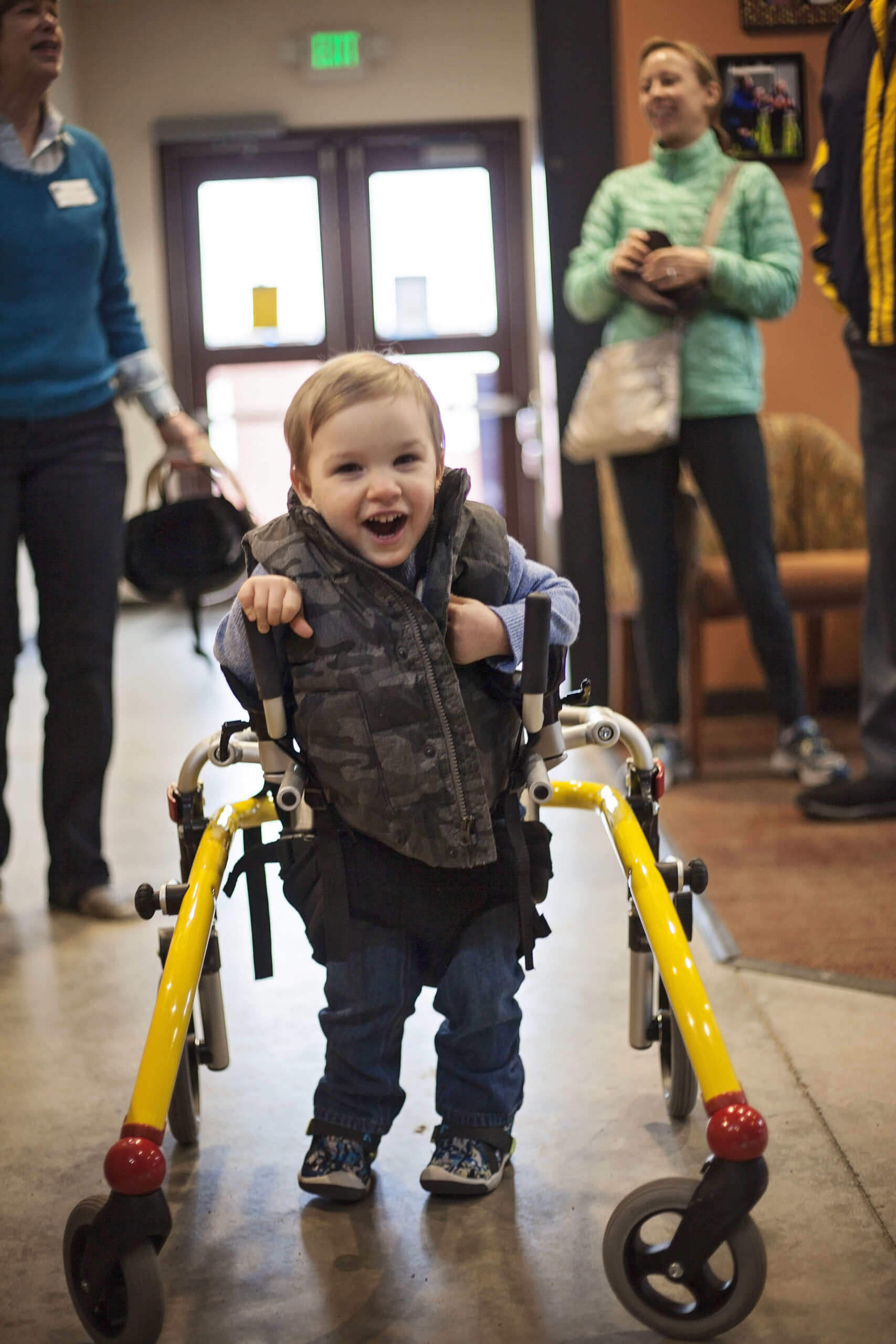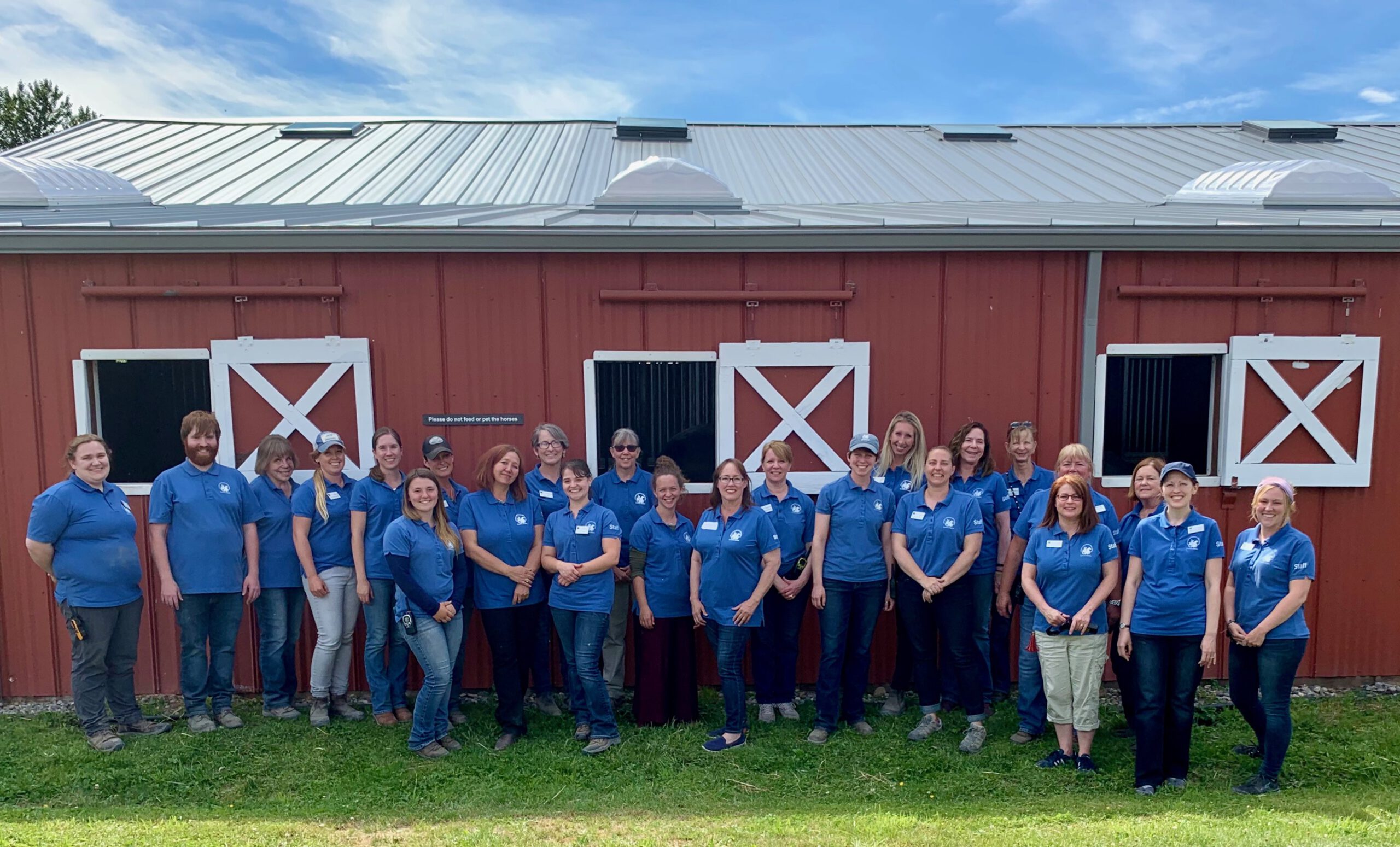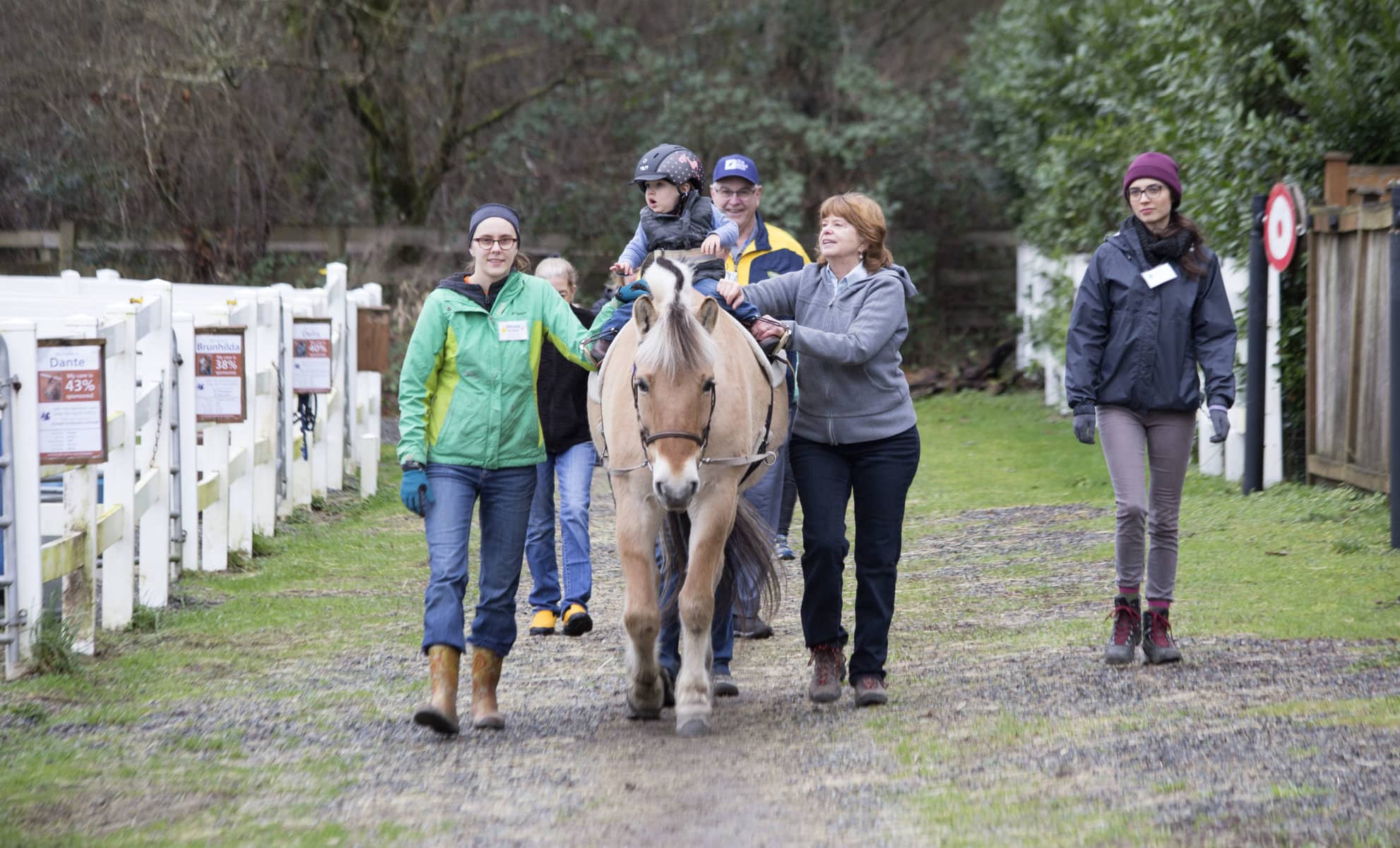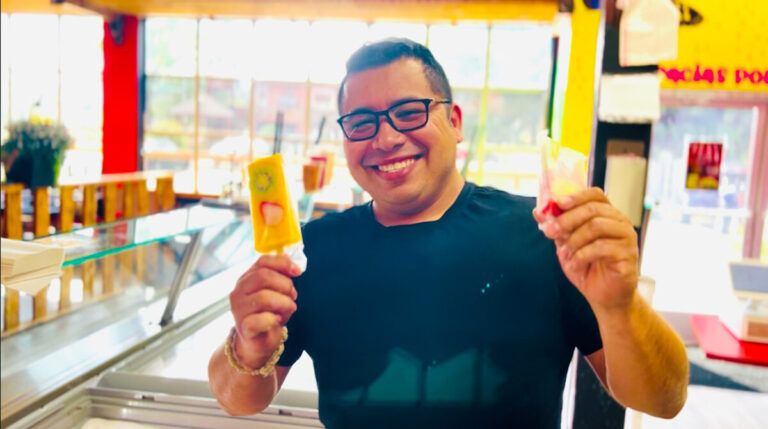
Jacob at Little Bit Therapeutic Riding Center
When two-year-old Jacob arrived at Little Bit Therapeutic Riding Center in 2017, he could not walk on his own. He’d been born with cerebral palsy, which limited both his speech and mobility, making it difficult for him to do even basic activities or interact with children his own age. His parents assumed he’d require special assistance and treatment for the rest of his life, but they hoped the experts at Little Bit could help him improve at least a little.
For his first ride at Little Bit, Jacob’s mom, Julie, elected to watch from outside the arena while two staff members and two volunteers helped her son mount the horse and ride it. She could have walked beside him but thought the distance would give Jacob a sense of independence, which she believed was critical to his development.
At first, Jacob cried the whole time. But despite that emotional first visit, his parents continued to bring him to Little Bit every week, and for the next three years, his family and his therapist began to see steady improvements in his ability to move and communicate. Thanks to the progress he’s made, Jacob has been able to function much more easily in his daily life.
“I’ve watched him progress to the point where he loves to trot, and he’s just bouncing and happy and laughing,” says Paula Del Giudice, Little Bit’s executive director. “He’s so brave and has so much fun with it.”
Jacobs’s transformation is not the result of regular horseback riding. It’s the result of hippotherapy, a medical discipline that uses the movement of horses to help individuals with physical, cognitive, and developmental challenges. Little Bit serves patients diagnosed with a wide range of roughly 100 disorders, including autism, multiple sclerosis, muscular dystrophy, and chromosomal disorders. Little Bit also serves older patients, like those who have lost mobility due to a stroke.
Paula says the physical improvements are not the only benefits patients receive from working with Little Bit. “The other thing that’s really cool is seeing patients and riders be in a position of power, especially with kiddos who have disabilities, who are often at ground level and they’re always looking up at the world. When you’re on the back of the horse, you’re in that position of power, and it’s cool to see the world from that position. They develop a lot more self-confidence, and that really helps in their growth, too.”
Little Bit opened in 1976 after founder Margaret Dunlap discovered that horseback riding helped slow the progression of her multiple sclerosis symptoms. At the time, hippotherapy (which is named for the Greek word for “horse”) was beginning to gain mainstream acceptance, and hundreds of other therapeutic riding centers opened across the United States. Today, Little Bit, located in Redmond, Washington, is one of the oldest and largest centers in the country, and the largest in Washington State. The center employs over sixty full and part-time staff members, works with 300 volunteers, and serves 600 patients and clients each year.
The science behind hippotherapy may not seem obvious, but once you learn more, it makes total sense. “The movement of the horses provides some really great benefits for riders and patients,” Paula says. “By just passively sitting on a horse, your body is moving with the horse in a way that helps build core strength. It’s the same kind of movement that the human pelvis would have when you’re walking. For those who have challenges, that helps build their core strength, which actually helps with their movement, their daily functioning, their daily lives. It helps them project their voices.”
There’s also an emotional component. “Humans have always had a really strong bond with horses,” Paula says. “They understand when they have a vulnerable, fragile rider on their back, and they’ll adjust their movements to keep pace with that person or to kind of give that person the movement that they need at the time. It’s really helpful for those that have diagnoses of Autism and others, too. A lot of our riders are unbalanced. We’ve seen horses actually move to get back underneath the rider, so sort of to take care of them. When a rider’s getting off the horse, I’ve seen the horse turn around to make sure the rider is okay. There’s this really great connection that helps all of those pieces come together.”
Little Bit offers several services. Its hippotherapy program includes speech-language, physical, and occupational therapy, all of which are administered by licensed therapists who have each received additional certifications in hippotherapy techniques by organizations like the Professional Association of Therapeutic Horsemanship (PATH) and the American Hippotherapy Association.
Typically, a patient will start a hippotherapy session with some basic stretching. Then a team of three people, comprised of one therapist and two volunteers, will help them mount the horse and guide them around the indoor arena or outdoor track for twenty or thirty minutes. Sessions conclude with some more stretching followed by unmounted therapy depending on the needs of the patient.

The staff at Little Bit Therapeutic Riding Center
Little Bit also offers adaptive riding, which is basically modified horseback riding lessons suited to people with disabilities. Many hippotherapy patients graduate to adaptive riding once they’ve achieved a certain level of progress, but starting in the therapy program is not a requirement. While adaptive riding does offer therapeutic benefits, it is a recreational activity.
The third main service Little Bit offers is equine-facilitated psychotherapy, which is exactly what it sounds like—a therapy session that uses the presence of a horse to facilitate connection and expression. Little Bit works with mental health professionals in the community who bring their clients to work with our equine specialists and horses. “The horses are like a giant feedback machine, where the therapist can often get the feedback from the horse about the emotions and the feelings and what’s going on with their clients,” Paula says. “They help bridge that gap between the patient and the therapist in a really great way.”
Because of Little Bit’s reputation, it often has a waiting list for people hoping to gain access to their services. In order to be considered, you must fill out an application, which is then assessed by the staff to determine if you (or the person on whose behalf you’re applying) is a suitable candidate. One requirement: the patient must be able to sit up without assistance. Once a spot on the schedule opens up, the staff will complete a physical evaluation to decide what program is most suitable. Little Bit serves clients and patients as young as two years old in its therapy program, but beyond that there are no age restrictions. The center also offers financial assistance to patients who qualify for treatment but who can’t afford the fees.
With such a high demand for their services, Little Bit is usually bustling, especially during the spring and summer when people are excited to ride outdoors. But since the outbreak of COVID-19, the center has been forced to shut down all but essential operations, like the care and feeding of the horses and certain administrative functions. This is especially difficult for the Little Bit community because they know that patients who stop treatment often regress.
As Washington State begins to reopen, Paula and her staff are trying to figure out ways to serve patients safely. “Our therapists started doing telehealth in May, with the patients for whom that was appropriate,” Paula says. “Then at the same time, we started with equine-facilitated psychotherapy, since there is more ability to socially distance and it’s not mounted, so it doesn’t require a lot of support from volunteers and others.”
On June 15th, Little Bit resumed some mounted work with patients, though Paula says it will still be a while before they’re able to operate at full capacity. “The staff will be limited and we’re training family members to be side-walkers for their patients, which is really beneficial,” she says. “We’ll also be starting some adaptive riding but it’ll be with more independent riders. About fifty of our riders are pretty independent, and they don’t need a lot of support from volunteers. We’re going to be offering private and semi-private lessons to get things started.”
Looking toward the future, Paula predicts it will be a long time before they can resume normal operations, especially considering the unique needs of their clients. “We always must remember that we’re working with vulnerable populations,” she says. “It’s critical that we keep them safe. We’ll probably be as conservative as we need to be. No matter what the guidelines are, we still have to be able to serve those people as carefully as possible. That will always come into whatever we plan we have moving forward.”
Still, Paula is optimistic. “The phrase I like, that we’ve been using a lot, is that we’re building the airplane as we fly it. That’s true for everybody, because nobody’s been through this before. We’re all kind of learning as we go. I have a great staff team and Board—great support from our Board of Trustees to help us figure all this out. We’re confident we’re going to move forward in whatever that new normal looks like.”
By Brooke Carey, Lead Storyteller
To learn more about how Gravity works with small businesses or to schedule a time with one of our industry specialists, visit our services page.
Photos and video courtesy of Little Bit Therapeutic Riding Center.




